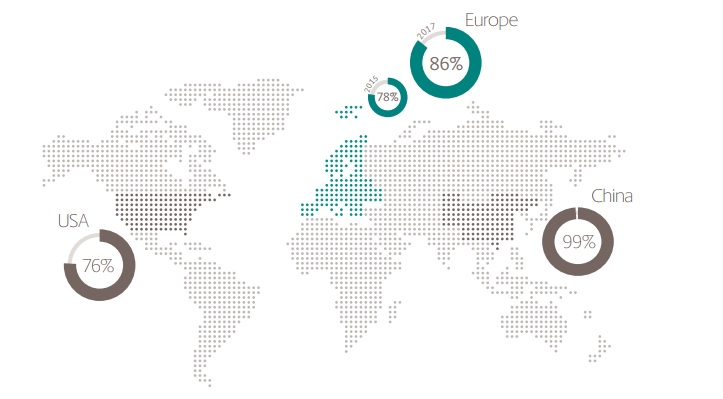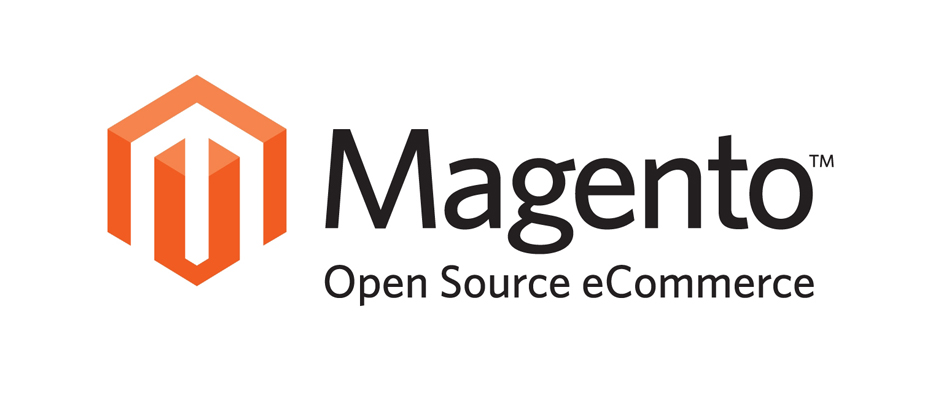In the past years, digitization changed the nature of retail businesses forgood and there’s no way back: soon enough eCommerce will fully dominate the market.Nowadays, tech-savvy online buyers know how to search online for all the services and goods they need in order to find the best offer. Let’s discuss some efficient eCommerce solutions!
According to this scenario, manufacturers and distributors need to revise their traditional strategiesand adopt more flexible and robust solutions to meet the online customer’s specific demands. Fortunately, these challenges come with a series of benefits, assuming you know how to make the best decisions for your business.
Here are the most fundamental concerns that we’ll be sorting out in this article to find the optimum eCommerce solutions for manufacturers and distributors, and help you shape your success in the digital era:
- Forecasting the future trends in manufacturing and distributionindustries
- What opportunities the eCommerce landscape presents to vendors andsuppliers
- What are the best strategies you can use to accommodate your business tothe evolving digital consumer market requirements
- What software solutions and eCommerce platforms are bestfor manufacturers and distributors to launch their business online and start making profit

1. The eCommerce Impact on Merchandise Production & Distribution

Today, with the constant growth of marketplaces, like Amazon, Alibaba andother online commerce solutions for all types of markets, the online customerbehavior has changed dramatically and the traditional retail chain is nowfacing disruption.
Manufacturers are now searching for modern eCommerce solutionsto improve their management and adapt each part of their workflow to onlinetechnologies, from the manufacture stages all the way down to the successful end product delivery.
In addition to the customers’ behavior changes, the industrial buyers areconstantly alternating their suppliers in search for the best offer in termsof quality and price. Under these circumstances, there’s only one aspect thatcan make a crucial difference from one business to another: adopting new waysto improve your presale and postsale customer experience.

1.1. Essential Aspects of Every eCommerce Business
As the Internet of Things is constantly growing and evolving, so are thecustomer’s demands. Standard buyers have now higher expectations than everbefore, in terms of:
- Access to product data in all the stages of their acquisition, from the manufacturing processes all the way to the delivery services
- A user-friendly order procedure that can facilitate online purchasing from laptop and smartphone, without having to call or email the customers support service
- An up-to-date eCommerce platform where the safety of their transactions is ensured
- Customer-friendly product return policies that may include free and fast shipping, and refunding
These are the essential aspects that describe the eCommerce businesses that are customer-oriented, and at the same time, these are the facets that give rise to unprecedented challenges for commerce companies, manufacturers and distributors altogether.
In the light of these changes, eCommerce experts advice toward adding eCommerce functions to manufacturers and distributors websites and invest in the newest digital strategies capable of driving your business success.
1.2. How eCommerce Technologies Extend Manufacturing and Distribution Industries
Here are some of the ways in which eCommerce will continue to affect manufacturing & distribution industry in the future, according to IDC FutureScape’s predictions:
- In 2018, more than 60% of manufacturers will invest in cloud-based warehouse management systems (WMS) and transportation management systems (TMS) to monitor the entire chain of pick up, transportation and delivery processes, from manufacturer to the end customers
- In 2018, 40% of manufacturers will invest in automated technologies and systems to improve their warehousing operations and processes, adopting the newest solutions to provide same-day delivery to their customers (e.g. drone delivery systems)
- By 2019, 25% of manufacturers will have implemented micro-logistics actions, focused on the supply chain and logistics workflow management optimization to implement a more distributed inventory management strategy
- By 2019, 50% of manufacturers will update their logistics network to offer 3D printing, robotics, and cognitive computing to support the newest business strategies
- By 2020, 50% of the operational processes will make use of the technologies of the future: AI, cognitive computing, and modern robotics
2. The Advantages eCommerce Industry Presents to Manufacturers and Distributors

Considering that by 2020 eCommerce will dominate the entire retail market, with more than half of the distributors and manufacturers managing their orders online, the success of your business depends now on developing a strong eCommerce website, for manufacturers and distributors included, to keep your business running. This translates into shifting from traditional manufacturing and supply services to the more automated, centralized and interconnected omnichannel demands that portray today’s retail industry.
Retailers are now searching for new ways to stay ahead of their competitors by integrating new functionalities into their online businesses, investing in software and services they never heard about before. And these tendencies will keep on evolving in the years to come.
Here are four advantages that manufacturers and distributors have for launching their businesses in the online commerce:
- eCommerce platforms are revolutionizing the workflow management and sales performances, bringing fresh opportunities to benefit from an increased ROI
- eCommerce technology allows you to track down every move your customers make on your website, how they use the search features of your site, what products they are most interested in, and thus it gives you many insights into how your customers engage with your business
- Both distributors and manufacturers can use these insights to improve their marketing strategies and try new, more cost-effective ways of promoting their goods and services – at even lower costs compared with the traditional channels – to increase their sales
- Specialized tracking software help monitor product delivery and transportation in real time and better manage each step of the delivery
- Mobility through cloud technology and distributed computing improves the efficiency of online businesses
- Measuring business performance through website analytics and statistics in terms of website traffic and conversion rates, social media performance and user behavior, and other key performance indicators that can help you get valuable insights for specific areas of your online presence
All these advancements are creating a customer-oriented ecosystem in which the traditional clear distinctions between manufacturing services, distribution services, and business partners fade away in the customer’s eye.
3. eCommerce Strategies for Manufacturers & Distributors

Online buyers are now accustomed with having access to detailed data on every step of their purchase, from product availability to pricing, discounts, and offers, purchasing terms and return policies, locating their delivery on the map almost in real time.
Any business that can’t raise the quality of their services to meet these expectations can risk a great loss in sales performance. As a result, traditional distributors are desperately trying to adapt their services to the customers’ requirements and offer the best pre-sale and post-sale services in their niche market.
Despite all the available eCommerce platforms for small or big business, distributors are still failing to embrace the new commerce trends and so they are missing the opportunities eCommerce technologies present to every business launched online.
The idea is not just to install eCommerce software and launch a website, but to apply the new commercial strategies that can help your business thrive.
Before purchasing a software or deciding to invest in an open-source platform implementation, we recommend you to find out more about how eCommerce technologies work and learn how to choose what’s best for your type of business, so you can make well-informed decisions and start your online business. Here are some interesting readings that you’ll find useful in your pursuit:
- What are the main three parts every eCommerce solution contains
- What’s the difference between hosted and self-hosted eCommerce platforms
- Questions That Help Small Business Owners Select an eCommerce Solution
- Key Aspects & Features of an ECommerce Software
- What Managing an eCommerce Business Means
- How to Find Out What Your eCommerce Business Needs Are
- What’s the Difference Between a Standalone eCommerce Website and a Marketplace
3.1. Key eCommerce Strategies
To help you benefit from the advantages eCommerce industry offers, we’ve prepared some key strategies to help your the first steps in launching your businesses online:
- Creating a website is a necessity, but it is not enough to install an eCommerce software for customers to come and purchase from your website. Your eCommerce strategy should be built with a focus on usability and attractiveness to create the best shopping experience for your online visitors. Imagine that when visitors lands to your website you want to benefit from their attention and communicate in an unique, fashionable and customer-oriented manner how you can be of help for them, by making your goods and services easily accessible for them online, via tablets, laptops or even smartphones, without being mandatory for them to pay a visit to your store’s location, call your customer support office or send additional confirmations by email
- eCommerce websites are appreciated by online customers because they have available all the specific details they need to know before making a purchase, be it a service or a product. Thus, you have to make sure that you display all the necessary details so your visitors can easily proceed to the purchasing stage without having to call or email your customer services support. Also, make sure that your business is transparent in all of its stages, from product manufacturing details to terms of delivery, and costs
- Another important aspect of your online presence is doing effective SEO for your eCommerce. Online users are getting smarter and smarter so traditional marketing campaigns are not enough to attract new customers and increase your sales. Plus, statistics show that organic search represents more than 50% of the total potential online traffic and 40% of an eCommerce business revenue each year. Learn why it is necessary to optimize your eCommerce website and what are the best practices you can use to make your website search friendly.
- Add a blog section to your website where you can publish articles on topics that are relevant to your target audience. When potential customers are searching for specific information that is related to your niche business, search engines will be more likely to display in the search results pages helpful articles related to the users’ query than eCommerce product or services pages. You can use this strategy to build your online presence and promote the services or products your business provides. To do it efficiently, we recommend hiring a copywriting agency.
3.2. Long-Term Strategic Business Objectives
When it comes to your long-term strategic business objectives, there are a couple of topics you can debate with your team and for your future business prospects, to constantly upgrade your marketing plan and stay competitive in the online market.
Here are some ideas to get you started:
- What are the latest eCommerce trends in your industry? Select an eCommerce platform that can offer you a quick and effective launch. Try to stick to the basics, aim for a simple look, try to use the default functionality where it is possible, and keep your third-party integrations at a minimum
- List your main objectives: attracting new customers, increasing the functionality of your website to offer a better shopping experience for your customers, promoting specific product lines or services, and so on. What your long-term business objectives?
- Analyze your workflow and see how you can integrate the eCommerce management tasks in your framework in such a way as to make the whole process more efficient. Which products are drop-shipped by the manufacturer? Can your customers purchase products from separate locations? How are the warehouses communicating the shipping information?
- Search for the eCommerce platform that can fulfill all your business requirements and consider hiring a specialized eCommerce management company to handle the tasks that you’re not prepared to handle on your own, such as website management, product management, pricing strategies, reporting analysis, marketplace management, customer service management, email and social media marketing.
4. Best eCommerce Solutions for Wholesale Manufacturers & Distributors

4.1. Why Manufacturers and Distributors Resist Adopting the New Commerce Trends?
Most frequently, manufacturers and distributors have the following reasons that refrain them from opening an eCommerce website:
- They find it difficult to make the right choice and think that developing an eCommerce website demands laborious work
- They think that managing an online business is too complex and that traditional commerce is enough to guarantee their success
- They imply that opening an eCommerce store is too expensive
- They aren’t aware of the benefits they have
- They have no in-house expertise to install and run an eCommerce platform
- They don’t find the time to do the shift and they are postponing the migration
What they aren’t aware of is that neglecting the eCommerce trends and refusing to implement the newest technologies, they on the verge of losing up to 4% of their revenue per year, every year.
But all the above worries have their solutions. Some of these topics we’ve already discussed in our previous blog posts, so if you find yourself in one of the above situations, you may want to check out these sections:
- Workflow Management Guide: How to Manage Your eCommerce Store
- Which eCommerce Platform is Best for Small Retailers – A Guide for Startups
Additionally, here are the best eCommerce platforms that allow manufacturers and distributors to successfully launch their business online and manage every stage of their eCommerce business while increasing their sales.
4.2. Top 3 eCommerce Platforms for Distributors and Manufacturers Websites
Magento

Magento is one of the most powerful eCommerce software for online shops, used by 18% of all eCommerce stores available today in the online commerce industry.
You have the following option for using Magento for your eCommerce:
- Magento Open Source, know also as Magento Community Edition, an open-source eCommerce platform for small to medium-sized businesses
- Magento 2 or Magento Commerce, build on the SaaS model (eCommerce platform as a service)
- Magento Commerce (On-Premises), known also as Magento Enterprise Edition, designed with specific features for medium to enterprise level companies
Magento offers the most complex applications and customizable features assisting your at every stage of your business:
- Marketing, promotions and conversion tools
- Search engine optimization specific features
- Site management, catalog management set of features
- Checkout, payment, and shipping dedicated features
- Order management, customer service, and international support
- Mobile commerce integrated features
- Analytics and reporting tools
Read here the full list of Magento’s features.
If you’ve chosen Magento platform to develop your eCommerce website, then we have more interesting reads for you, that will help you be ahead of your competitors:
- Optimizing your Magento eCommerce site’s SEO
- The ultimate handbook on Magento pricing in 2018
- eCommerce management guide: how to better handle your Magento store
- Migrating from Magento 1 to Magento 2: how to proceed with the inevitable upgrade
- Magento agencies vs freelancers: how to choose the best developer
- Making your Magento site better: performance optimization guide
WooCommerce

WooCommerce is an open-source software designed for small and medium-sized businesses that you can add to your current WordPress website, or build a new eCommerce website.
WooCommerce is one of the most popular platforms for fresh retailers and since 2011 when it was first launched, it has a spectacular market share growth.
Its specific features make it a good choice for manufacturers and distributors that want to start an online business:
- Modern and easy to use interface
- WordPress content Integration
- Pre-installed payment gateways & control over the checkout process
- Geo-location support and location enabled taxes
- Automatic taxes
- Add/Manage products, product types, and variables
- Inventory management
- Shipping price calculations, and multiple flexible shipping methods
- Custom tax calculations
- Select customer address
- Tax rate definition
- SEO features
- Owner verification
- Reporting tools
- CRM/Store management
Find out more about WooCommerce’s features from our previous blog post, dedicated to eCommerce solutions for small to medium-sized businesses.
Shopify

Shopify is one of the most popular eCommerce solutions developed on a SaaS model, one that can help you build your eCommerce website without much technical assistance.
Although Shopify is easier to install, it’s customizability level is limited, compared to the above mentioned open-source eCommerce software options.
However, Shopify offers just the right set of features a new online business requires, from small to large scale manufacturers and distributors, to constantly improve their shops and attract more customers.
- CMS product management features: real-time order notifications, payment tracking, shipping status and orders detailed reports
- CMS admin interface features: streamlined dashboard, interactive statistics, inventory and stock notifications
- eCommerce marketing and SEO features
- Integrated hosting solutions
- Backed reliability and speed of MySQL databases
- Secure transaction features
If Shopify sounds more like the right eCommerce platform for you, then learn more about it from our previous blog posts on:
Conclusion
As developing an eCommerce website is becoming a priority for manufacturers and distributors, building a user-friendly website with a strong infrastructure to offer the best services for your customers and increase their satisfaction level is mandatory.
As it is the case with every online business, the base structure of every successful eCommerce is understanding your target audience’s needs, their online behavior and constantly searching new ways to improve the quality of your products and services to stay ahead of your online competitors.
In the end, eCommerce industry presents various opportunities for each type of business to expand and attract more and more customers, so why not try to make the best out of it?
Contact an expert today!